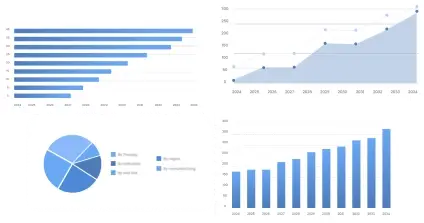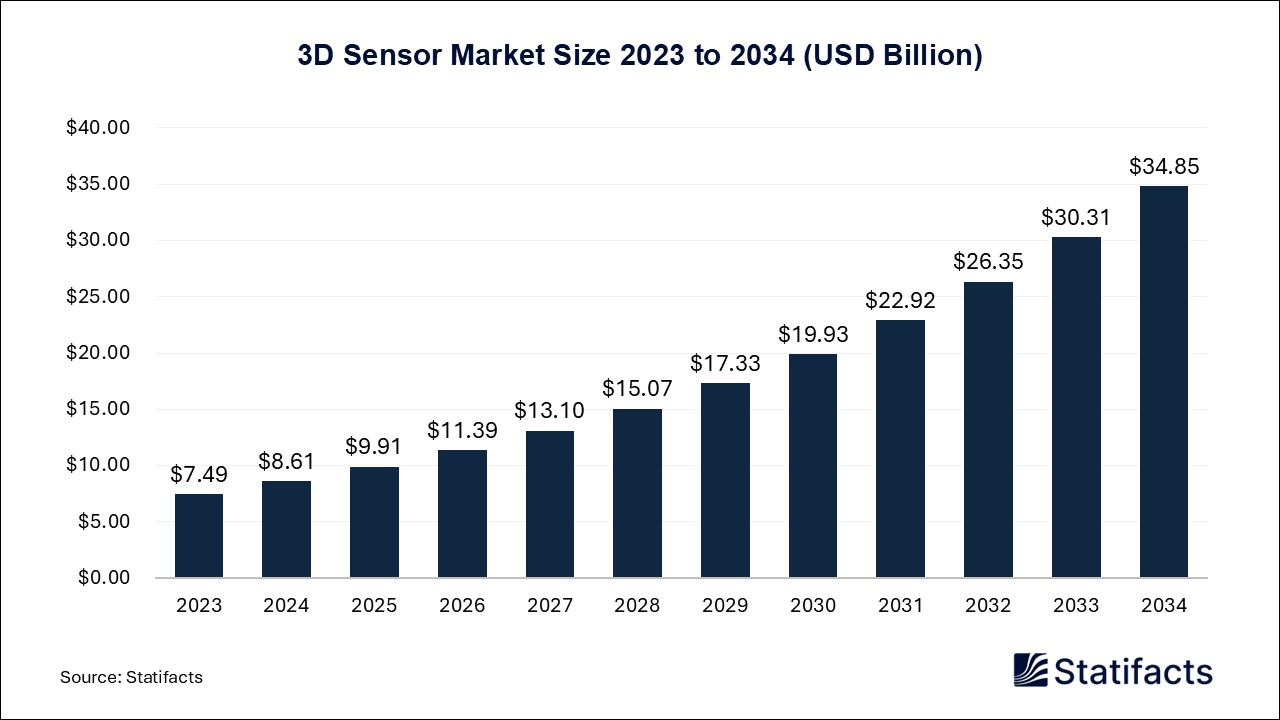
By clicking “Accept All Cookies” you agree to the storing of cookies on your device to enhance site navigation, analyze site usage, and assist in our marketing efforts.
Privacy Policy

The global precision genomic testing market size was calculated at USD 15,510 million in 2024 and is predicted to attain around USD 62,200 million by 2034, expanding at a CAGR of 14.9% from 2025 to 2034.
| Industry Worth | Details |
| Market Size in 2025 | USD 17,820 Million |
| Market Size by 2034 | USD 62,200 Million |
| Market Growth Rate from 2025 to 2034 | CAGR of 14.9% |
The precision genomic testing market refers to the production, distribution, and application of precision genomic testing, which looks at the genetics, environment, and lifestyle of a person to select the treatment that could work best for them. Precision genomic testing looks at the genetics of tumors as well as normal DNA. The test aims to find changes in your genes that can affect your health. It starts by taking a DNA sample, generally tissue, saliva, or blood sample. The DNA is analyzed by computer programs and ‘written out’ as a letter code, which is unique to each person. Genomics has many benefits in precision medicine.
Next-generation sequencing (NGS) can sequence multiple genes at once, identify disease-associated variants to help match patients to therapies or assess disease risk, and help target therapies and reduce overall care costs. The expansion of precision medicine is based on using many sources from genomics, biological data, transcriptomics, and proteomics crucial for prediction, to be more precise and accurate in diagnoses, definitions, and treatments of disease subtypes. Genomic testing is used to help guide prevention or treatment plans that will enhance healthcare outcomes and reduce adverse events.
AI-based bioinformatics driving the growth of the precision genomic testing market. By integrating AI with bioinformatics, researchers can develop predictive models that are not only more accurate but also more robust and reliable. Additionally, the synergy between AI and bioinformatics allows the discovery of new insights and associations in biological systems. AI contributes to predicting and optimizing genome editing methods like CRISPR-Cas9. ML algorithms can analyze large-scale genetic sequence datasets, which can then be used to steer the
development of more accurate and effective genome editing technologies by predicting probable off-target consequences. Scientists can use AI models to understand and analyze genetic sequences or predict sequence properties and design new sequences. This moves biology from a descriptive to a more predictive and ultimately engineering realm, advancing the domains of medicine, biotechnology, synthetic biology, and beyond. The AI benefits include better innovation, enhanced efficiency, and task automation. AI-based bioinformatics benefits include the advancement of medical discovery and development of treatments, disease monitoring and prevention, and enhancing the overall effectiveness and precision of clinical medicine.
CRISPR gene editing driving the growth of the precision genomic testing market. CRISPR gene editing has gifted us everything from new cancer therapies to the ability to create animals resistant to specific diseases. CRISPR gene editing allows scientists to quickly create cell and animal models, which researchers can use to accelerate research into diseases such as cancer and mental illness. Additionally, CRISPR is now being developed as a rapid diagnostic tool.
Compared with the conventional approaches for the improvement of the expression of specific genes of interest, the CRISPR/Cas-9-based system has emerged as a promising technology for genome regulation, allowing convenience, specificity, robustness, and scalability for endogenous gene activation. Due to its efficiency and affinity, CRISPR has been considered to be a revolutionary invention in the field of genetic editing and molecular biology. Compared with other genetic editing technologies, CRISPR has an irreplaceable advantage, which is its accessibility.
Published by Kesiya Chacko
| Subsegment | 2024 | 2025 | 2026 | 2027 | 2028 | 2029 | 2030 | 2031 | 2032 | 2033 | 2034 |
|---|---|---|---|---|---|---|---|---|---|---|---|
| Consumables | - | - | - | - | - | - | - | - | - | - | - |
| Kits | - | - | - | - | - | - | - | - | - | - | - |
| Reagents | - | - | - | - | - | - | - | - | - | - | - |
| Equipment | - | - | - | - | - | - | - | - | - | - | - |
| Services | - | - | - | - | - | - | - | - | - | - | - |
| Subsegment | 2024 | 2025 | 2026 | 2027 | 2028 | 2029 | 2030 | 2031 | 2032 | 2033 | 2034 |
|---|---|---|---|---|---|---|---|---|---|---|---|
| Oncology | - | - | - | - | - | - | - | - | - | - | - |
| Cardiovascular Diseases | - | - | - | - | - | - | - | - | - | - | - |
| Neurological Disorders | - | - | - | - | - | - | - | - | - | - | - |
| Reproductive Health | - | - | - | - | - | - | - | - | - | - | - |
| Rare Diseases | - | - | - | - | - | - | - | - | - | - | - |
| Others | - | - | - | - | - | - | - | - | - | - | - |
| Subsegment | 2024 | 2025 | 2026 | 2027 | 2028 | 2029 | 2030 | 2031 | 2032 | 2033 | 2034 |
|---|---|---|---|---|---|---|---|---|---|---|---|
| Next-Generation Sequencing | - | - | - | - | - | - | - | - | - | - | - |
| Polymerase Chain Reaction | - | - | - | - | - | - | - | - | - | - | - |
| Microarray Technology | - | - | - | - | - | - | - | - | - | - | - |
| Sanger Sequencing | - | - | - | - | - | - | - | - | - | - | - |
| CRISPR/Cas Systems | - | - | - | - | - | - | - | - | - | - | - |
| Others | - | - | - | - | - | - | - | - | - | - | - |
| Subsegment | 2024 | 2025 | 2026 | 2027 | 2028 | 2029 | 2030 | 2031 | 2032 | 2033 | 2034 |
|---|---|---|---|---|---|---|---|---|---|---|---|
| Hospitals & Clinics | - | - | - | - | - | - | - | - | - | - | - |
| Diagnostic Laboratories | - | - | - | - | - | - | - | - | - | - | - |
| Research & Academic Institutes | - | - | - | - | - | - | - | - | - | - | - |
| Others | - | - | - | - | - | - | - | - | - | - | - |
To get full access to our Market Insights, you need a Professional Account or a Business Suite.

You will receive an email from our Business Development Manager. Please be sure to check your SPAM/JUNK folder too.

You will receive an email from our Business Development Manager. Please be sure to check your SPAM/JUNK folder too.

Our customers work more efficiently and benefit from



